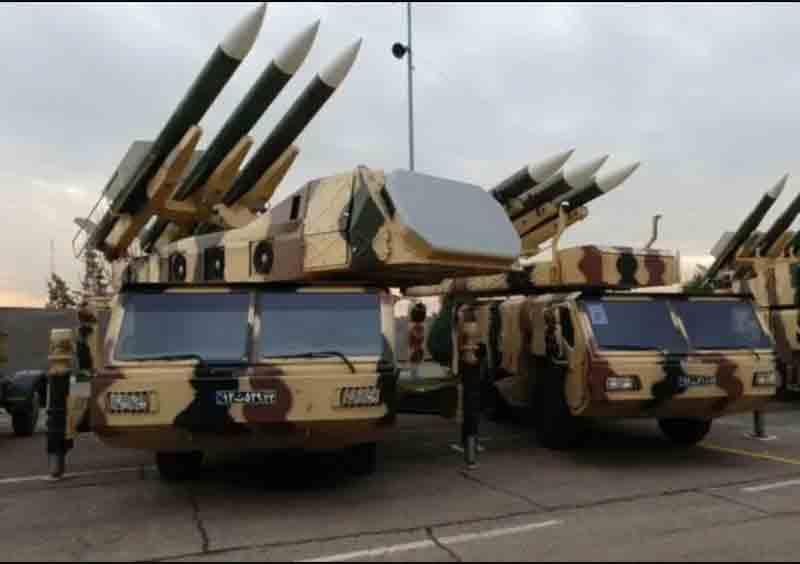On Wednesday, the US State and Defense departments took steps to facilitate the exit of non-essential personnel from various locations in the Middle East, as reported by US officials and sources familiar with the situation.
The reason behind this abrupt shift in stance remains unclear; however, a defense official indicated that US Central Command is keeping an eye on the “developing tension in the Middle East.” President Donald Trump informed reporters on Wednesday, upon his arrival at a Kennedy Center event, that “They are being moved out because it could be a dangerous place, and we’ll see what happens. But they have been or we’ve given notice to move out, and we’ll see what happens.”
Although the specific causes for the increased security concerns in the region are not fully understood, the planned evacuations coincide with rising tensions between Iran and Israel, as the Trump administration continues its efforts to negotiate a new nuclear agreement with Iran.
Secretary of Defense Pete Hegseth has permitted the voluntary departure of military dependents from various locations in the Middle East, according to the official statement. “The safety and security of our service members and their families remains our highest priority, and U.S. Central Command (CENTCOM) is monitoring the developing tension in the Middle East,” the official stated. Additionally, Gen. Michael Kurilla, the CENTCOM commander, has delayed his scheduled testimony before a Senate committee on Thursday due to the escalating tensions, as noted by a defense official.
The State Department is preparing to mandate the departure of non-essential personnel from US embassies in Iraq, Bahrain, and Kuwait due to heightened security risks in the area, as reported by a separate US official and another source familiar with the situation. Additionally, a departure order for non-essential personnel will be issued for the US consulate in Erbil, located in Iraqi Kurdistan, according to the sources.
Iraq: On June 11, the Department of State ordered the departure of non-emergency U.S. government personnel due to heightened regional tensions. As a reminder, the Travel Advisory for Iraq is Level 4: Do Not Travel. Do not travel to Iraq due to terrorism, kidnapping, armed… pic.twitter.com/NYlZhJqQsm
— Travel – State Dept (@TravelGov) June 12, 2025
An official from the Iraqi government stated that these personnel movements are unrelated to the security situation in his country. “President Trump is dedicated to ensuring the safety of Americans, both domestically and internationally. In line with this commitment, we continuously evaluate the appropriate personnel presence at all our embassies. Following our most recent assessment, we have decided to scale back our Mission in Iraq,” a State Department official remarked when questioned about the change in posture.
Later on Wednesday, the department revised its travel advisory to indicate that the departure of non-emergency US government personnel “due to increased regional tensions” had been mandated. Trump has expressed growing doubts about the possibility of reaching a deal with Iran to limit the country’s nuclear ambitions, stating in a recent interview that Tehran might be “delaying” the agreement. “I’m becoming increasingly less confident about it. They appear to be stalling, which is unfortunate, but my confidence has diminished compared to a couple of months ago,” Trump mentioned in an interview with a New York Post podcast released earlier on Wednesday. “Something has changed for them, and I am significantly less confident that a deal will be reached,” he continued, attributing his feelings to his “instincts” suggesting that a deal is becoming less attainable.
CNN reported on Wednesday that Trump advised Israeli Prime Minister Benjamin Netanyahu to refrain from discussing a potential attack on Iran, as per a source familiar with their conversation. The two leaders had a phone call on Monday, after which Trump remarked that the discussion went “very well, very smooth.”
Last month, CNN disclosed that the US had acquired new intelligence indicating that Israel was preparing to target Iranian nuclear facilities, according to several US officials acquainted with the latest information. Two intelligence sources noted that the US had detected signs of Israeli military activity, including the movement of air munitions and the conclusion of an air exercise.
However, officials warned that it remains uncertain whether Israeli leaders have reached a final decision, and there is significant disagreement within the US government regarding the probability of Israel taking action.
Iran’s defense minister cautioned on Wednesday that if the nuclear negotiations with the US collapse and conflict ensues, the US would be “compelled to exit the region.” Brigadier General Aziz Nasirzadeh stated that in such a scenario, “the adversary will undoubtedly incur greater casualties,” although he did not clarify whether the “adversary” referred to the US, Israel, or both.
In remarks published by Iran’s state-run IRNA news agency, the defense minister indicated that some officials from the opposing side had “issued threatening statements, warning of possible conflict if no agreement is achieved” in the US-Iran discussions. “In that event, the US will have no alternative but to depart the region, as all of its bases are within the reach of Iranian military forces, and they will not hesitate to target all of them in their host nations,” Nasirzadeh stated.
Discover more from Defence Talks | Defense News Hub, Military Updates, Security Insights
Subscribe to get the latest posts sent to your email.





